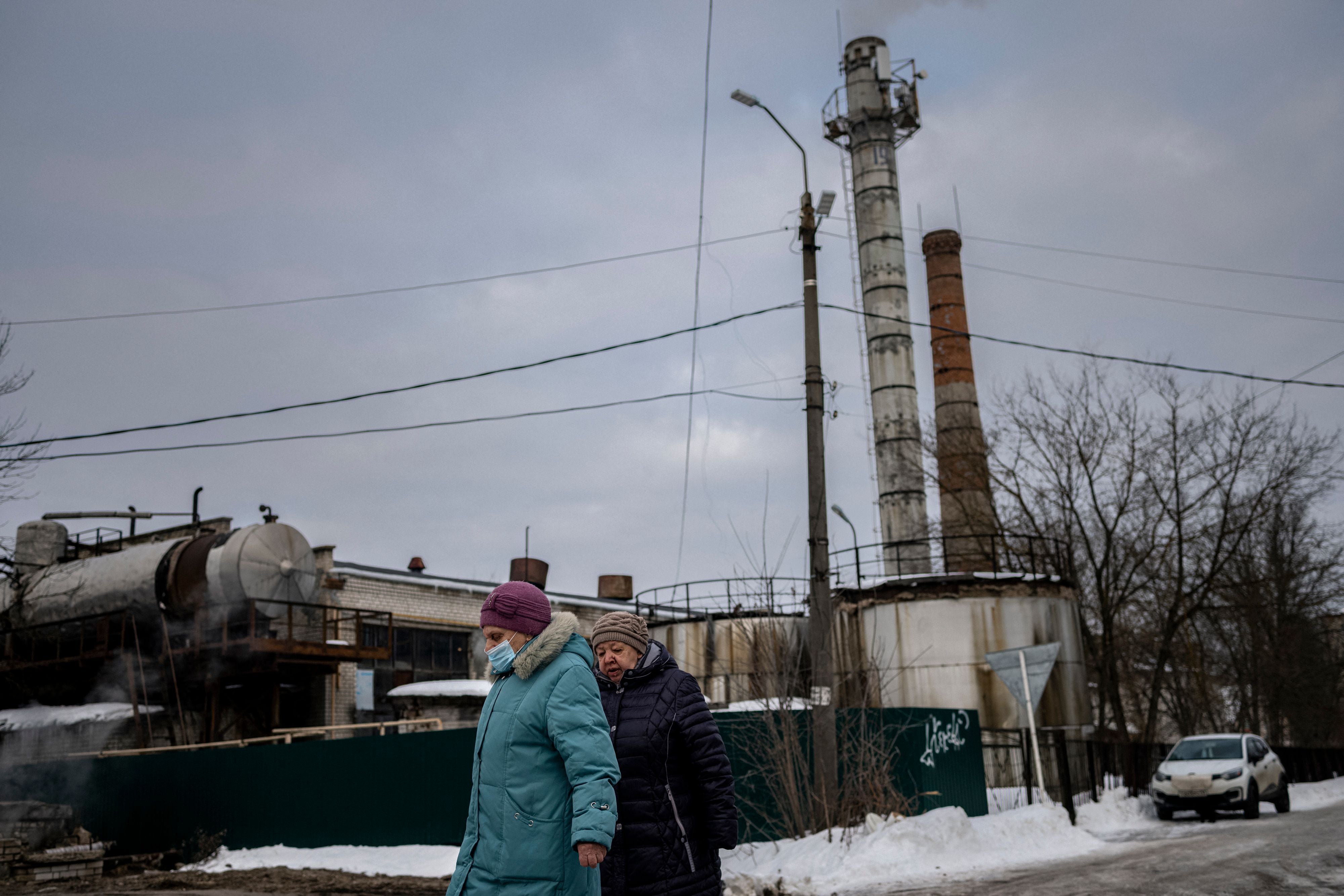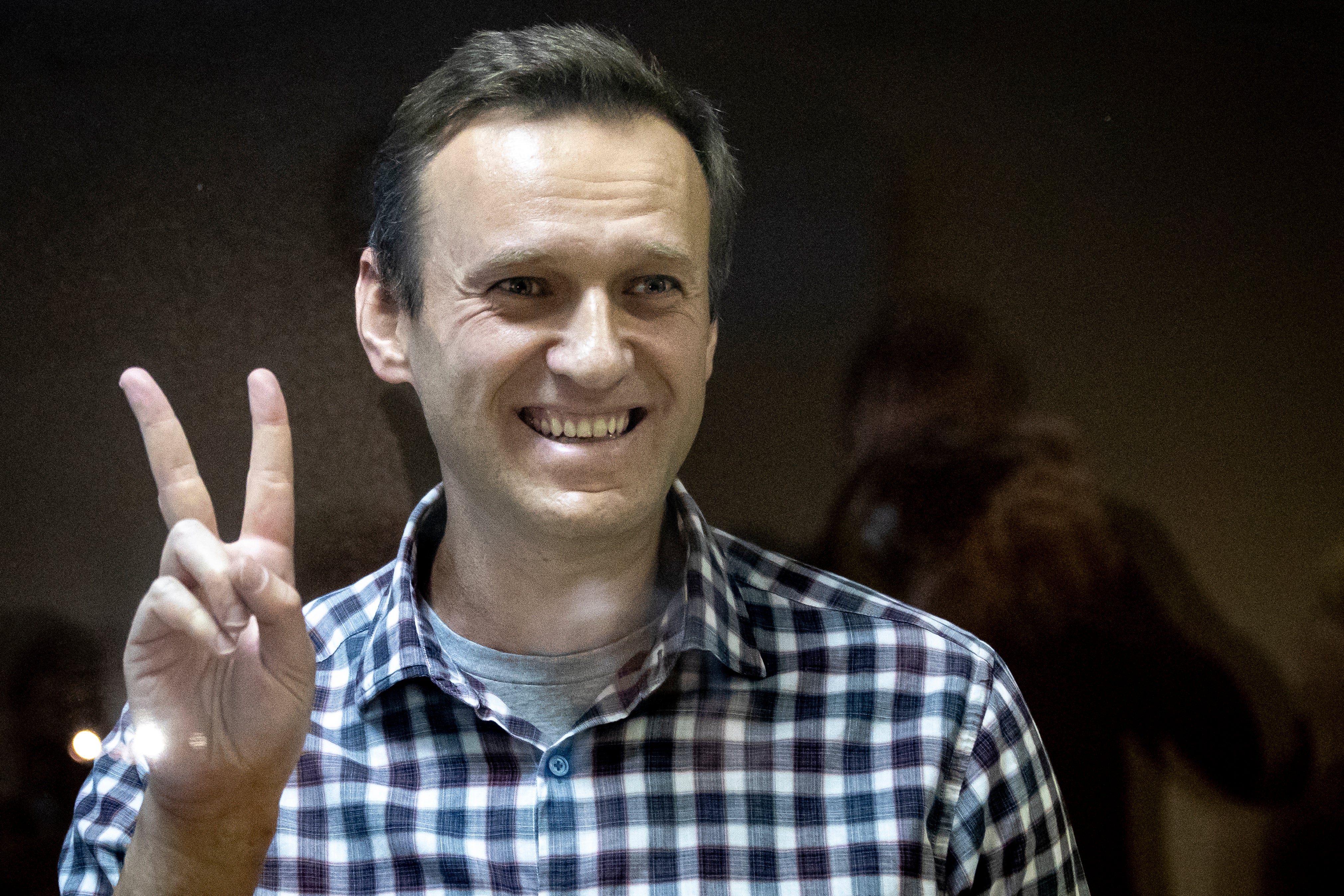Life in Russia’s ‘harshest’ jail: The prison colony that Alexei Navalny now calls home
The base is geared to ‘the sophisticated humiliation of human dignity’

Your support helps us to tell the story
From reproductive rights to climate change to Big Tech, The Independent is on the ground when the story is developing. Whether it's investigating the financials of Elon Musk's pro-Trump PAC or producing our latest documentary, 'The A Word', which shines a light on the American women fighting for reproductive rights, we know how important it is to parse out the facts from the messaging.
At such a critical moment in US history, we need reporters on the ground. Your donation allows us to keep sending journalists to speak to both sides of the story.
The Independent is trusted by Americans across the entire political spectrum. And unlike many other quality news outlets, we choose not to lock Americans out of our reporting and analysis with paywalls. We believe quality journalism should be available to everyone, paid for by those who can afford it.
Your support makes all the difference.With rumours finally confirmed that Alexei Navalny will be spending at least the first part of a two-and-a-half-year jail term in the infamous penal colony no 2 (IK-2) in Vladimir region, a previous inmate has a message for the incoming prisoner.
“Prepare to be cut off from humanity,” he said.
Konstantin Kotov, an activist who spent over a year in IK-2, 60 miles east of Moscow, says the choice of the harsh jail is no accident.
Some colonies in Russia are hands-off, with prisoners allowed to dictate their own timetables. Others are run by the inmates themselves. In the most relaxed, prisoners even manage to record hip-hop records.
Not in IK-2. Here, every conversation is observed, mobile phones are banned, emails are blocked and the prisoners have to comply with an exhausting regime that leaves little or no time to themselves.
From reveille at 6am, it’s wash, stretch and dress to hear the the national hymn. Then it’s more stretching – the commands are barked over the tannoy – followed by breakfast and morning head counts. Those checks take place outside, regardless of the temperature, and can last over an hour. Prisoners stand in lines, motionless and with their hands behind their backs.
Given the harshness of the regime and the winter, health issues among inmates are a given, Mr Kotov told The Independent.
The activist is still suffering skin problems after picking up scabies in the prison. (He only saw a doctor after six weeks.) For months, he suffered from colds and fevers after being without gloves. When a fellow inmate finally let him use his, he was punished for sharing by being taken off early release lists.
Much of the order in the colony is ensured by prisoners themselves, who are under strict instructions to snitch and not to speak to fellow inmates. So-called activist prisoners work directly with guards to ensure compliance. Their reward is early release. Parole without collaboration is unusual, Mr Kotov said.
After the morning checks, it’s off to the workhouses. Most of the 800 or so prisoners are assigned to one of three specialist sections: woodwork, metalwork or sewing. Mr Kotov was placed in a section with disabled prisoners, so was required to do only light work or watch state television.
Alexei Navalny is unlikely to be granted such privileges.
Dmitry Demushkin, a far-right activist who spent just under two years in IK-2, said it was likely that the opposition leader would be placed in isolation in the “controlled” section “A” of the prison, at least for the first few weeks of his stay. This part of the colony is usually referred to by its acronym Suka – translated in English as “bitch”.
Here, prisoners are banned from speaking or reading, and are forced to stand or sit all day, hands behind back and head lowered.
“Prisoners know IK-2 [is the] harshest prison colony in the land,” Mr Demushkin told Dozhd TV, a liberal media outlet. “Some cut open their veins and stomachs to avoid being sent here.”

Olga Romanova, director of prisoner-rights organisation Russia Behind Bars, echoed the shocking statement. After representing Mr Demushkin’s interests in 2019, her organisation had come to know the Vladimir colony well, she said. The “draconian” place was “truly among Russia’s worst... and geared to the sophisticated humiliation of human dignity”.
Unlike the other most notorious prisons, IK-2 does not have a reputation for physical violence per se. Mr Kotov, for example, says he avoided assault completely, though he knew other prisoners were beaten on their heels with chair legs. It was “activist” prisoners rather than prison officers doing the beatings, he added.
On Sunday, Ruslan Bakhapov, an activist of Ms Romanova’s group, with contacts inside the colony, confirmed that Mr Navalny was delivered to the prison on Saturday in strict compliance with regulations.
Not a finger was laid on the Kremlin critic or those prisoners arriving with him, the activist said.
Mr Kotov predicted that would continue.
“I don’t think they will try anything physical on Navalny, given his prominence,” he said. “But the psychological pressure will be serious enough.”



Join our commenting forum
Join thought-provoking conversations, follow other Independent readers and see their replies
Comments